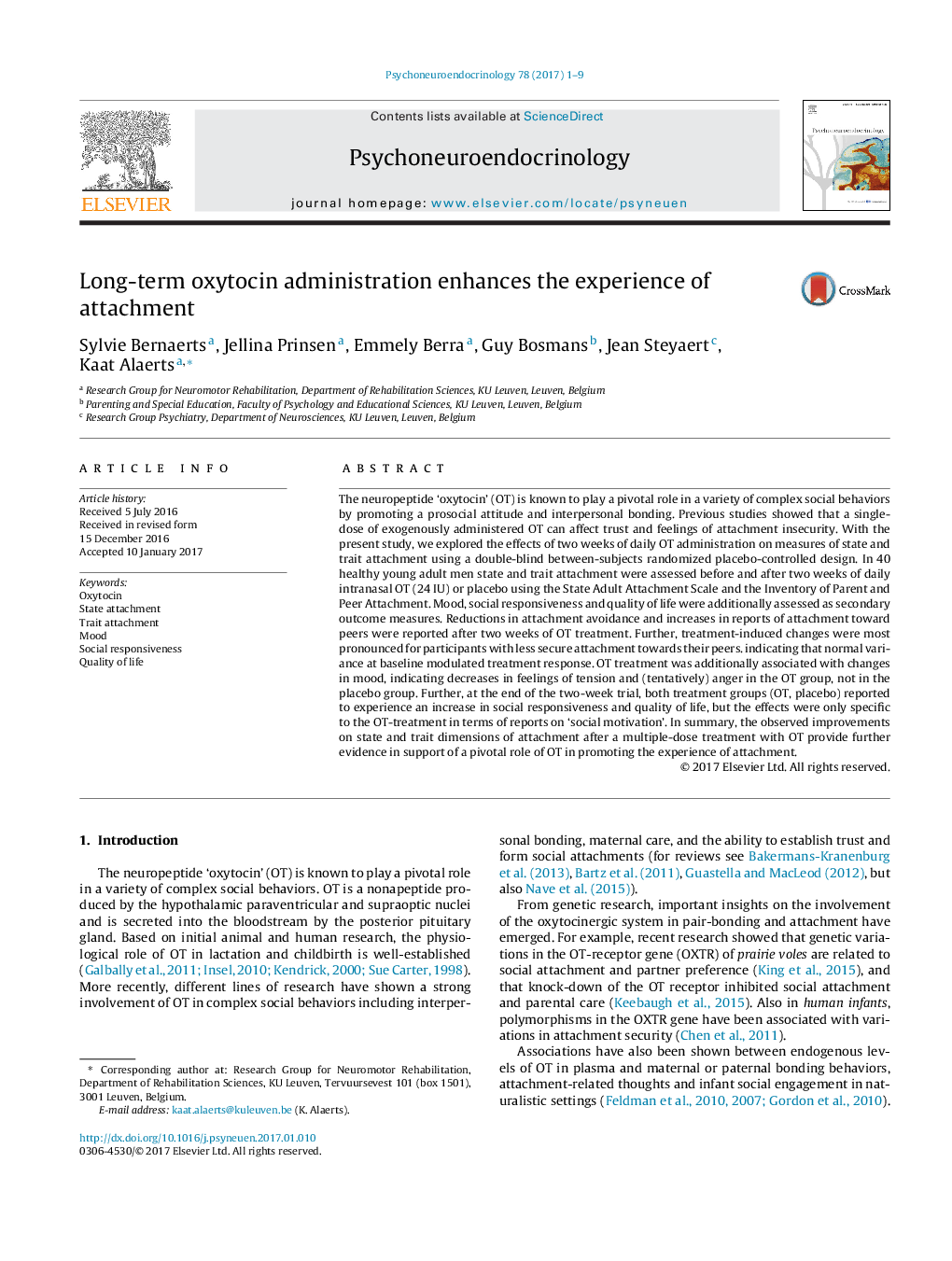ترجمه فارسی عنوان مقاله
تجویز اکسیتوسین درازمدت تجربیات دلبستگی را افزایش می دهد
عنوان انگلیسی
Long-term oxytocin administration enhances the experience of attachment
| کد مقاله | سال انتشار | تعداد صفحات مقاله انگلیسی |
|---|---|---|
| 153662 | 2017 | 9 صفحه PDF |
منبع

Publisher : Elsevier - Science Direct (الزویر - ساینس دایرکت)
Journal : Psychoneuroendocrinology, Volume 78, April 2017, Pages 1-9
ترجمه کلمات کلیدی
اکسی توسین، وابستگی دولت، دلبستگی صفات، حالت، پاسخگویی اجتماعی، کیفیت زندگی،
کلمات کلیدی انگلیسی
Oxytocin; State attachment; Trait attachment; Mood; Social responsiveness; Quality of life;

